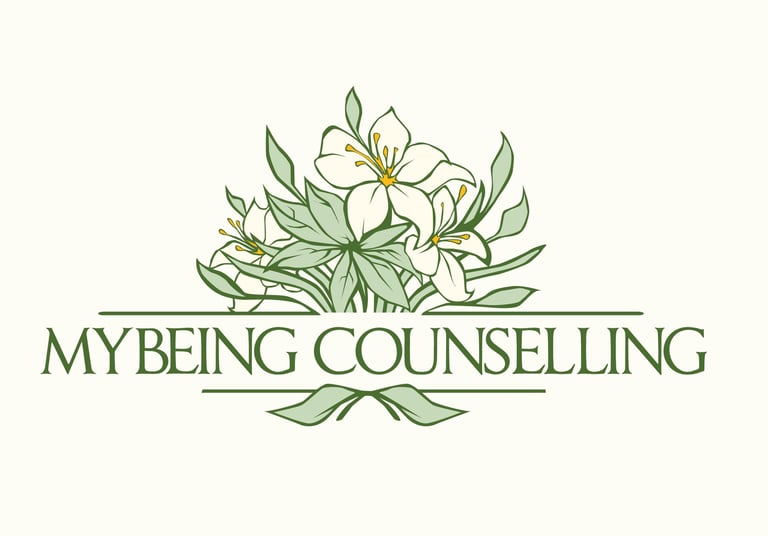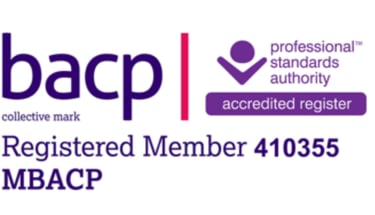👉 Free 15-minute introductory call to see if we’re the right fit together
The Fine Line Between Friendship and Counselling
📝 ‘The Fine Line Between Friendship and Counselling’ I explore: 🔹 Why I can’t offer counselling to friends or people I already know 🔹 The key differences between being a good friend and being a therapist 🔹 Why trust in counselling is something that’s built, not assumed 🔹 How long-term therapy supports deep processing and healing
Jasmin Duncan
8/7/20254 min read


The Fine Line Between Friendship and Counselling.
When I started training as a counsellor, a few friends said to me:
🗣️ “You’re such a good listener, I feel like I could just have you as my counsellor!”
At the time, I took it as a lovely compliment. I am a good listener. I care deeply about the people in my life. I want them to feel safe, heard, and supported. But as I went further into my counselling training and especially now that I’m practising I’ve come to realise just how different counselling and friendship really are. And more importantly, why I can’t offer therapy to friends or people I already know.
🧡 What I Might Do as a Friend
As your friend, I want to make you feel better. If you’re hurting, I might:
Offer advice, try to solve the problem or jump into “fix-it” mode
Share my own experiences so you feel less alone
Hold back what I really think (even if it’s positive!) because I don’t want to upset or embarrass you
Feel emotionally involved in your situation
Expect mutual support because friendship is a two-way relationship
And that’s completely normal.
That’s what friendship is. It’s supportive, caring, emotional, and mutual. We share, we give, we take, we hold each other.
But that’s not what counselling is.
As a counsellor, my role is very different:
I hold a confidential, boundaried space that’s focused 100% on you
I don’t offer advice or try to fix things instead, I help you explore, understand, and connect with your own truth
I stay with the painful, messy, or uncomfortable stuff without judgment, avoidance, or emotional involvement
I gently reflect back patterns, challenge where needed, and help you make sense of what you’re holding
I don’t expect you to be there for me, this space is yours
This difference is what makes counselling powerful. It’s not a conversation, it’s not mutual, and it’s not personal in the same way friendship is. And that’s exactly why it works.
I’ve also had friends say:
🗣️ “But I already trust you ! why go to a stranger?”
It’s such a heartfelt thing to hear, and I never take that trust for granted. But here’s the truth: trust in counselling is something that’s built, not something that should already exist.
In therapy, trust develops over time slowly, carefully, and through consistency.
It’s not based on shared history, but on safety, boundaries, presence, and the feeling that you can bring anything without fear of being judged, fixed, or emotionally entangled.
That’s also why I believe long-term therapy can be so powerful it gives you the time and space to explore things deeply, to go beyond surface-level coping and into real understanding, processing, and healing.
True therapeutic trust is earned session by session. And it only works when the therapist is fully present for you without being part of your everyday life.
🚫 Why I Can’t Be Your Counsellor if We Know Each Other?
You might be wondering, “But if you’re trained and I already trust you, why can’t I just talk to you as my therapist?”
The answer is boundaries and safety. In counselling, a dual relationship (being both therapist and friend, relative, or colleague) creates blurred lines that can harm both of us, and the work.
Here are a few ways things can become unclear:
🔄 Blurred Roles
You might not know whether I’m responding as your friend or your counsellor
It becomes confusing if we’re having therapy one day and going for a coffee the next
You might want emotional closeness like in friendship but that crosses the therapeutic boundary
🤐 Unspoken Expectations
You may not feel free to open up in session in case I judge you or take it personally
Or you may share too much, expecting the friendship to stay the same afterwards
You might expect me to “carry” your story in social situations — that’s a lot to hold
😕 Emotional Entanglement
I might struggle to stay neutral if I care deeply about you or if we have shared history
If your story involves people we both know, I can’t offer the safe neutrality you deserve
I could want to protect you or make things better which gets in the way of the real therapeutic work
🧭 Power and Trust Confusion
Counselling has structure, consistency, and boundaries. Friendship doesn’t
You might feel unable to challenge me or disagree with me in therapy, in case it affects our friendship
It’s hard to fully let go and explore yourself when the relationship is already complicated by real-life ties
Counselling works best when the relationship is clear, consistent, and boundaried.
That’s not cold or clinical, in fact, it’s the opposite.
It’s what allows the therapeutic relationship to be safe enough, stable enough, and strong enough to hold everything you bring without judgement, fear, or confusion.
So while I’m always touched when someone I care about says they’d trust me as their counsellor, I know that the most ethical and loving thing I can do is refer you to someone who can offer that support without personal ties.
If you’re ever in that place needing to talk, to explore, to be deeply heard, I’ll always help you find the right person.
💛
Because you deserve a space that’s fully yours.
If you're curious about counselling or what that kind of support could look like for you, feel free to get in touch or have a browse at www.mybeing.org
#CounsellingVsFriendship #TherapyBoundaries #WhyCounsellorsCantBeFriends #SafeSpace #TrustTakesTime #MyBeingCounselling #TherapyExplained #MentalHealthSupport



